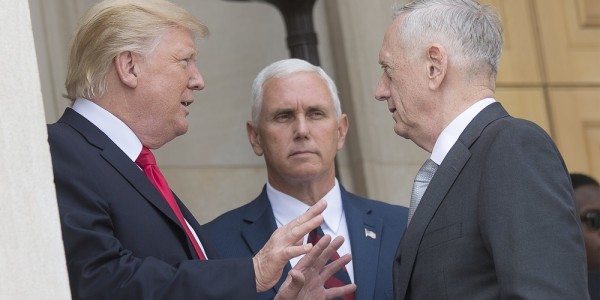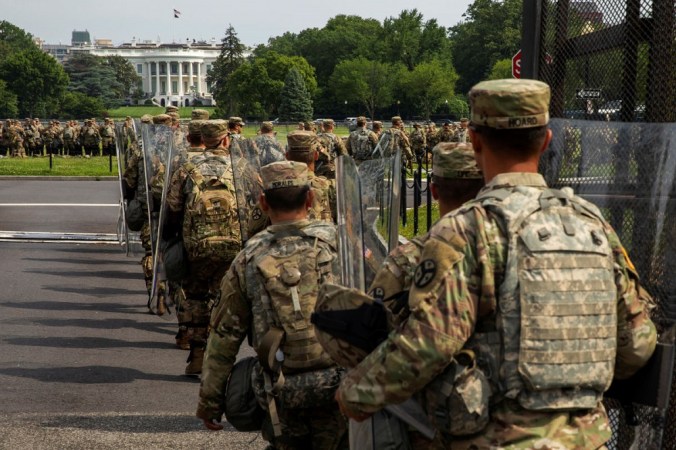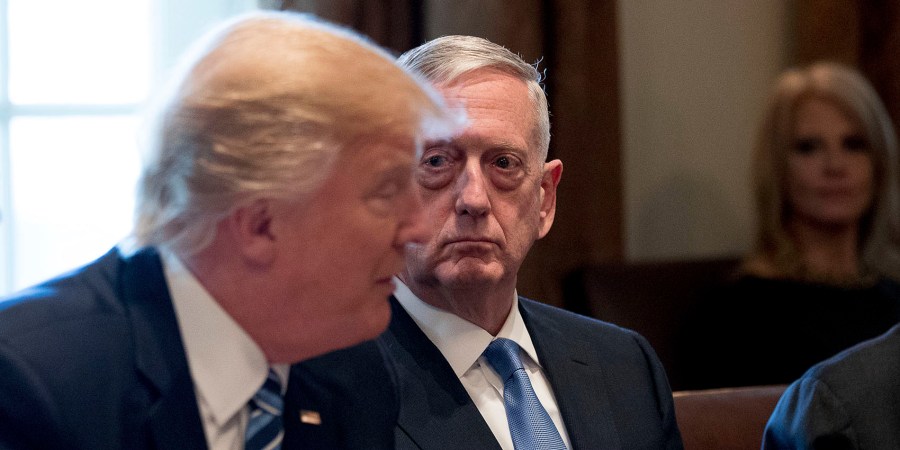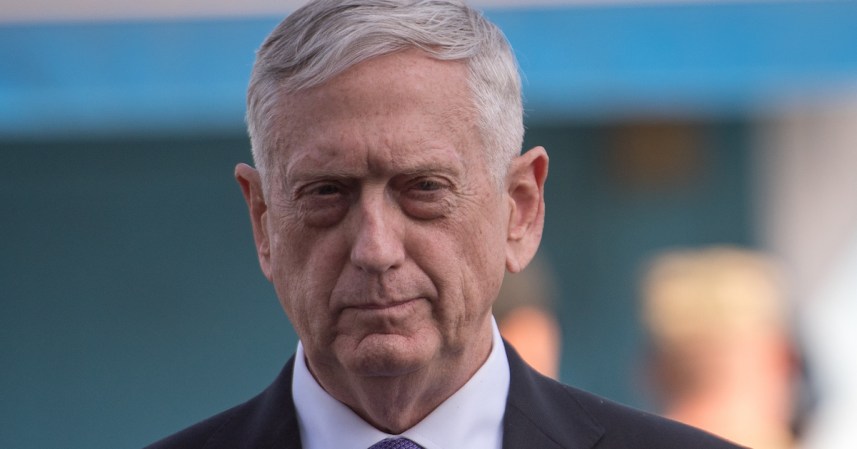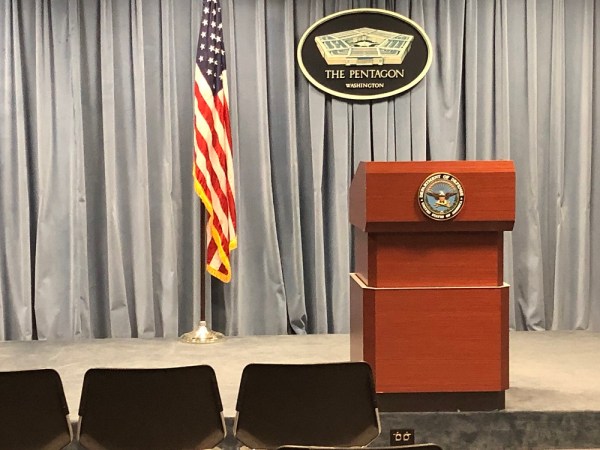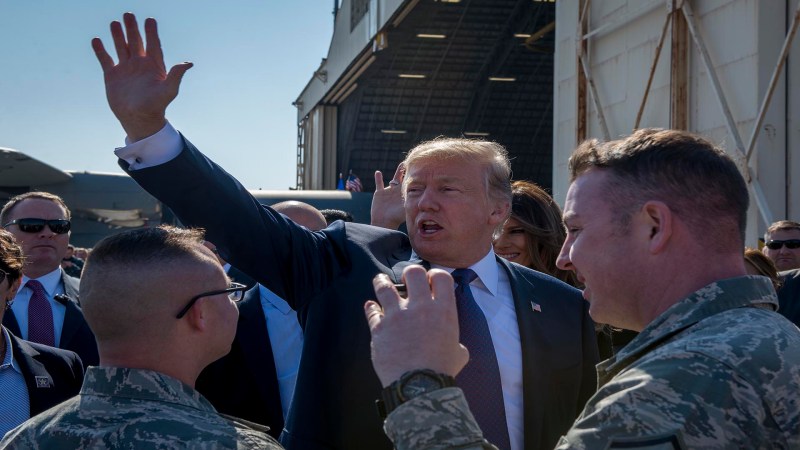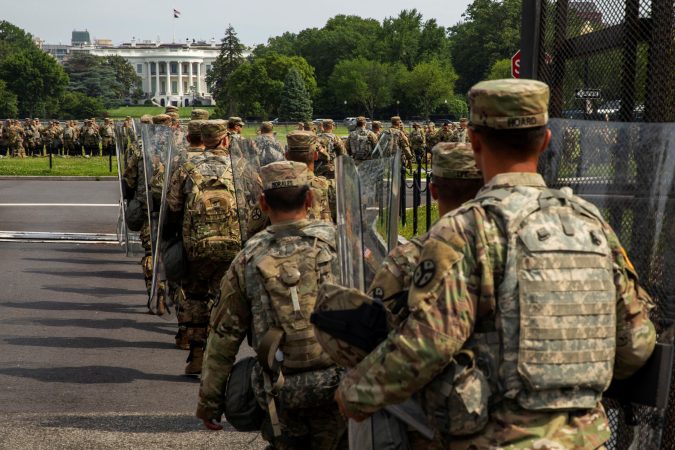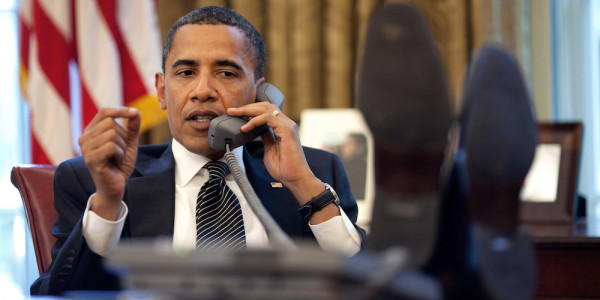All right, gumshoes, let’s play everyone’s favorite game: Where in the world is Defense Secretary James Mattis?
If you’re wondering what Mattis is up to these days, join the club. The Pentagon has gone dark over the summer, providing little – if any – information about what the secretary is doing from day to day. Smelling blood in the water, news media have recently reported that Mattis is on the outs with the president, who no longer relies on the secretary’s counsel.
One reason for the impression that Mattis is a lame duck is that President Trump has made so many decisions against Mattis’ advice, including: withdrawing from the Iranian nuclear weapons agreement; moving the U.S. embassy in Israel to Jerusalem; imposing steel and aluminum tariffs on U.S. allies; and ordering the creation of an independent Space Force.
President Trump has a long history of ignoring Mattis and other advisors, such as when Trump refused to say the U.S. would defend all NATO members in a May 2017 speech, Rep. Adam Smith, D-Wash., told Task & Purpose on Wednesday.
“I think he still listens to Mattis, but he still does what he’s been doing since he got into office, which is make impetuous, poorly thought out statements and/or decisions that then Secretary Mattis and others have to try to clean up,” said Smith, the ranking Democrat on the House Armed Services Committee. “It’s been a security problem. It continues to be a security problem. The unpredictability of the president is going to make it more difficult for us to maintain the alliances that we need.”
BuzzFeed also reported on internal DoD communications Wednesday that indicate the White House often makes pronouncements on national security without consulting the Pentagon. Smith said he was not surprised by the story, noting that Director of National Intelligence Dan Coats appeared shocked last week when he first learned from a reporter that Trump had invited Russian President Vladimir Putin to the White House.
“The president makes decisions, fires them off and doesn’t talk to his secretary of defense, doesn’t talk to his director of national intelligence and they’re all left scrambling trying to figure out what it means,” Smith said. Buta congressional staffer advised T&P; that all defense secretaries have been overruled by the president at some point, no matter who sits in the Oval Office. Lawmakers who deal with national security issues do not find credence in news reports that the president no longer listens to Mattis.
It is hard for Task & Purpose to discern whetherMattis has trulyfallen from the president’s favor. The only two people who really know are Mattis and the president, neither of whom like to shoot the breeze with your friendly Pentagon correspondent.
Moreover,Washington is essentially “Game of Thrones,” with countless bureaucrats selling stories of palace intrigue in the never-ending quest to unseat a rival from the Iron Throne (or, at least, a job somewhere near it).
If Mattis has made a strategic decision to eschew the press to avoid incurring the president’s wrath, it has only reinforced the impression among the media that other government officials have effectively frozen him out of the president’s decision-making process, such as National Security Advisor John – don’t call him “Michael” – Bolton.
Publicly, Mattis makes a point of saying he is in lockstep agreement with President Trump. He recently described as “fiction” an NBC News report that the Pentagon had to do “damage control” after the president blew up at NATO allies in Brussels – without specifying what information was wrong.
However, Mattis was also noticeably absent when the president met with North Korean dictator Kim Jong Un on June 12 in Singapore. During a rare media availability on the previous day, Mattis noticed that several reporters were watching cable news coverage of the summit instead of looking at him.
A Pentagon spokesman declined to characterize Mattis’ relationship with the president when asked about it by T&P.;
“Secretary Mattis is the principal advisor to the president on matters of national defense,” Thomas Crosson said. “The secretary routinely consults and advises fellow cabinet members, the NSC [National Security Council] and the president on a variety of topics, to include implementing the president’s National Security Strategy.
“The secretary’s priorities for the department are aligned with the administration and he continues to work on building a more lethal force for America, strengthening our alliances and bringing business reforms to the department. I’m not going to provide specific details of the secretary’s interactions with the president.”
The White House declined to provide a comment for this story.
So that leaves your humbled Pentagon correspondent just as ignorant as he was before, unable to make full sense of the world, like Goethe’s “Faust.” (This reporter also has a degree in German and has waited 17 years for a moment when it would come in handy.)
Secretary Mattis has a standing invitation to come down to the press bullpen to educate your humble reporter about what it’s really like to work for this president – and to share Marcus Aurelius’ recipe for banana nutbread.
WATCH THIS:
Jeff Schogol covers the Pentagon for Task & Purpose. He has covered the military for 12 years and embedded with U.S. troops in Iraq and Haiti. Prior to joining T&P;, he covered the Marine Corps and Air Force at Military Times. Comments or thoughts to share? Send them to Jeff Schogol via email at schogol@taskandpurpose.com or direct message @JeffSchogol on Twitter.

